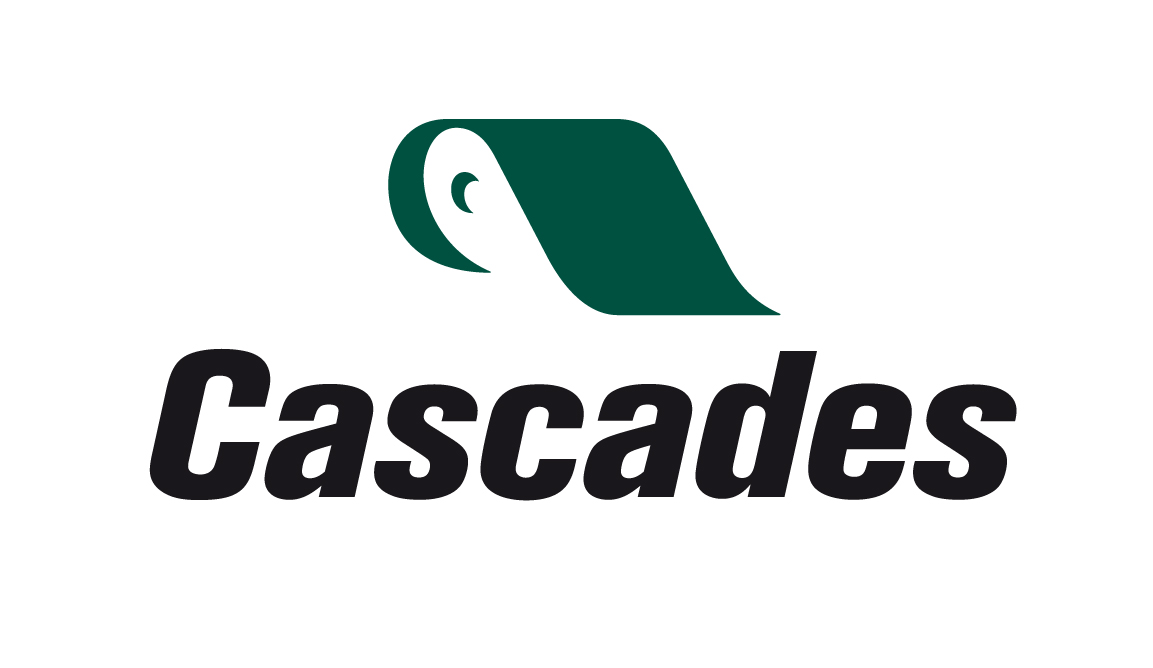ENVIRONMENT: Increase the Recovery of Waste Materials
The Trash Cans at Cascades Are Slimming Down!
Kingsey Falls, October 25, 2013 /3BL Media/ – As part of Waste Reduction Week, which is in full swing until October 27, we are inviting everyone, both individuals and organizations (industries, businesses and institutions), to celebrate the event by incorporating the 4Rs (reduce, reuse, recycle and recover) into their daily activities.
Cascades has made a commitment to do just that, by setting a target in regard to waste management in its 2013-2015 Sustainable Development Plan. The goal: to raise its waste recovery rate from 67% to 71%.
"Cascades has based its business model on recycling waste, waste paper and cardboard. Because we give a second life to millions of fibres every year, it's only natural for us to work toward recovering as much of our waste as possible in order to reduce the amount sent to landfill," explained Mario Plourde, President and Chief Executive Officer of Cascades.
Different types of waste, different types of recovery
Papermaking waste, which represents 98% of the waste generated by Cascades, is produced at various stages in the paper and paperboard manufacturing process. This waste can be divided into three broad categories: screen reject, mixed sludge, and de-inking sludge. Screen reject is composed mainly of materials other than fibres, such as plastic, glass or metal (not sorted at the source), found in the bales of recycled paper purchased by Cascades. These materials, the most difficult to recover, are collected during the first stages of the pulping process. Using them to generate energy is a key area of focus because of their high calorific value, an element beneficial to the production of steam and/or electricity.
Both mixed sludge and de-inking sludge, produced by wastewater treatment in manufacturing plants and the de-inking process of recycled fibres, are already recovered in large part. Mixed sludge is used primarily as fertilizer and organic compost by farmers. Sludge produced by the de-inking process makes an excellent liming material for acidic farmland. Both types of sludge are also burned to create steam and electricity.
Projects with results
From 2013 to 2015, Cascades will implement a number of promising projects that will be key to helping it reach its target. Since 2013, the de-inking sludge from its Memphis plant has been used in lieu of sand for the daily cover and final cover on a landfill site. Thanks to this project, approximately 45 000 tonnes of waste has been reused, replacing close to 100 000 tonnes of sand in one year.
In 2014, Cascades plans to recover the wood ash produced by the Norampac−Trenton plant. The project is currently under way, and will result in the recovery of an estimated 7 000 tonnes of ash per year.
The Trash Tower project to be implemented at the Niagara Falls plant in 2014 will lead to the recovery of 13 500 tonnes of screen reject. These materials will be converted into steam and used to dry paper.
"We have already managed to reach a remarkable waste recovery rate and, each year, we work to increase it even more. Our teams are dedicated to finding new opportunities and ensuring that at Cascades, waste gets a second life," stated Léon Marineau, Vice-President of Environment at Cascades.
Throughout the implementation of its Sustainable Development Plan, Cascades will be targeting projects such as these to maintain sustainable waste management. For more details, consult the 2013-2015 Sustainable Development Plan, and the results of the 2010-2012 Plan.
– 30 –
Founded in 1964, Cascades produces, converts and markets packaging and tissue products that are composed mainly of recycled fibres. The Company employs more than 12 000 men and women, who work in over a hundred production units in North America and Europe. With its management philosophy, close to half a century of experience in recycling, and continuous efforts in research and development as driving forces, Cascades continues to deliver the innovative products that customers have come to rely on. Cascades' shares trade on the Toronto Stock Exchange under the ticker symbol CAS.
Information:
Hugo D’Amours
Vice-President, Communications and Public Affairs
Cascades Inc.
819 363-5164
hugo_damours@cascades.com
Website: www.cascades.com
Green by Nature Blog: blog.cascades.com
Facebook: facebook.com/Cascades
Twitter: twitter.com/@CascadesDD | twitter.com/@CascadesSD | twitter.com/@CascadesInvest
YouTube: youtube.com/Cascades

